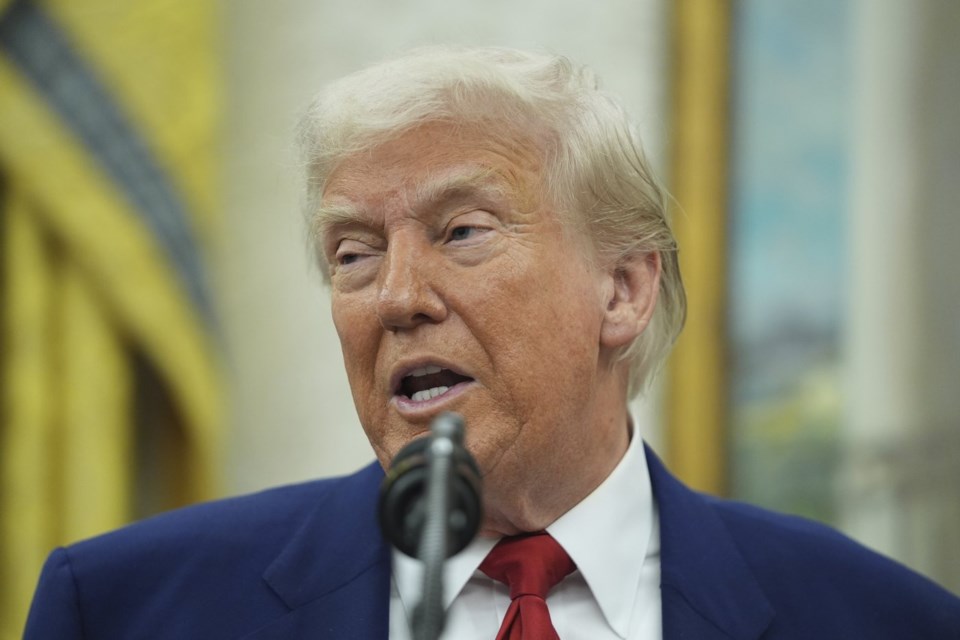WASHINGTON (AP) — President Donald Trump wants the world to know he's no “chicken” just because he's repeatedly backed off high tariff threats.
The U.S. Republican president's tendency to levy extremely high import taxes and then retreat has created what's known as the “TACO" trade, an acronym coined by The Financial Times’ Robert Armstrong that stands for “Trump Always Chickens Out.” Markets generally sell off when Trump makes his tariff threats and then recover after he backs down.
Trump was visibly offended when asked about the phrase Wednesday and rejected the idea that he's “chickening out,” saying that the reporter's inquiry was “nasty.”
“You call that chickening out?” Trump said. “It's called negotiation,” adding that he sets a “ridiculous high number and I go down a little bit, you know, a little bit" until the figure is more reasonable.
Trump defended his approach of jacking up tariff rates to 145% on Chinese goods, only to pull back to 30% for 90 days of negotiations. He similarly last week threatened to impose a 50% tax on goods from the European Union starting in June, only to delay the tariff hike until July 9 so that negotiations can occur while the baseline 10% tariff continues to be charged. Similar dramas have played out over autos, electronics and the universal tariffs that Trump announced on April 2 that were based in part on individual trade deficits with other countries.
In each case, Trump generally took the stock market on a roller coaster. Investors sold-off when the tariff threats were announced as they implied slower economic growth and higher prices, which would hurt companies' profits. Stocks then rebounded after Trump stepped back.
As of Wednesday afternoon, the S&P 500 stock index was up slightly so far this year. But the index was down as much as 15% on the year on April 8, a reflection of the volatility that Trump's changing policies have created.
He said that approach has led to $14 trillion in new investment in the U.S., a figure that appears to be artificially high and has not been fully verified by economic data.
“Don’t ever say what you said,” Trump said with regard to the notion of him chickening out. “To me, that's the nastiest question.”
Trump said that EU officials would not be negotiating if not for his 50% tariff, saying he usually has the opposite problem of being “too tough.”
Josh Boak, The Associated Press



